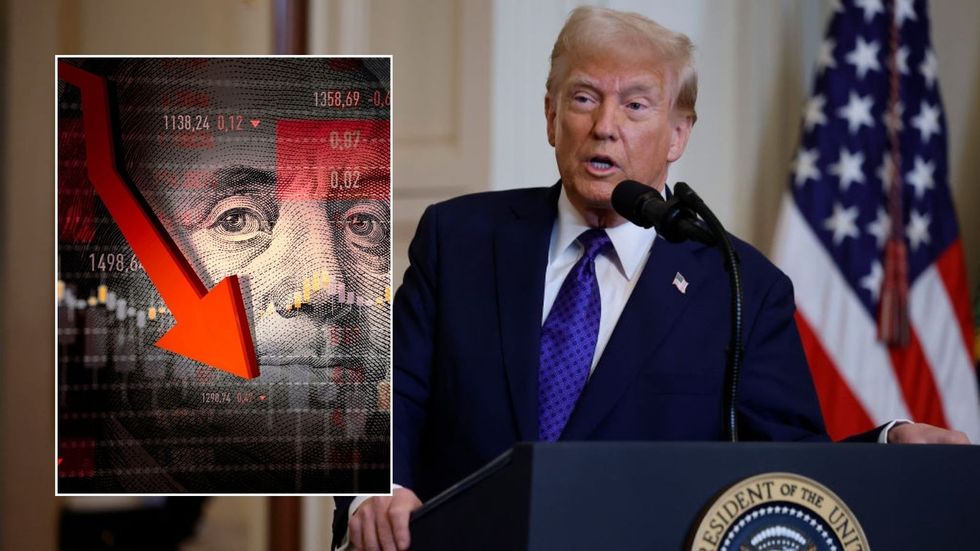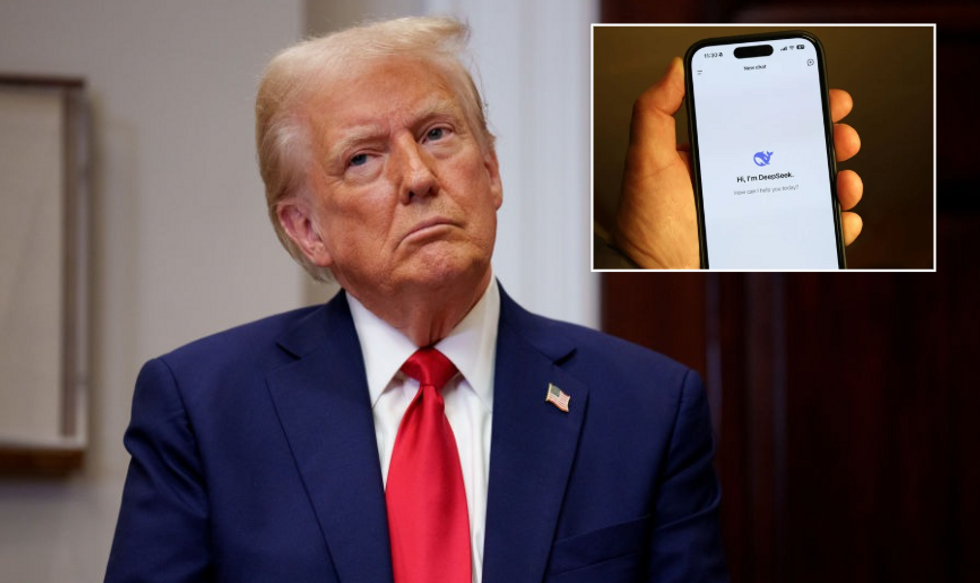Hedge funds are making unprecedented multi-billion-dollar bets against the US stock market, signalling expectations of a devastating crash that could wreak havoc on retirement savings across America.
The dramatic shift marks a stark reversal from just two months ago, when Wall Street billionaires were enthusiastically backing so-called “Trump trades” following the President’s election victory.
Data from Goldman Sachs has sent shockwaves through financial circles, revealing hedge funds are now positioning themselves for what they believe could be a precipitous market decline.
Analysts are sounding the alarm that this move threatens to impact millions of workers who rely on 401(k)s and pension funds to secure their futures. Throughout January, investors placed ten times more bets on American stocks falling than rising, according to Goldman Sachs data.
The timing coincides with a massive £600billion wipeout in major US tech stocks earlier this week. The pessimistic outlook represents a significant shift in market sentiment, with hedge funds now actively betting against the very economy they once championed.
Do you have a money story you’d like to share? Get in touch by emailing [email protected].

Hedge funds are betting against President Trump’s economic policies
GETTY
Elliott Management, one of the world’s most influential hedge funds managing over £70billion in assets, has warned that Trump’s policies are fuelling speculative bubbles.
The fund’s executives believe these bubbles could “wreak havoc” if markets crash, according to the Financial Times. The massive sell-off has particularly impacted the “Magnificent Seven” tech giants – Alphabet, Amazon, Apple, Meta, Microsoft, Nvidia, and Tesla – which have all suffered substantial losses.
The market turmoil was triggered by rising fears over Chinese AI rival DeepSeek, which has disrupted the once-unshakeable dominance of America’s technology sector.
Chipmaker Nvidia has been hit especially hard, with its shares plunging more than 18 per cent in the past five days. The company lost a staggering £589billion in value on Monday alone, highlighting the scale of investor concerns over increased competition from Chinese AI firms.

A US market crash could tank 401(k) savings and pension pots
GETTY
The dramatic reversal comes after hedge funds had previously positioned themselves to capitalise on what they predicted would be a golden era for corporate America under Trump.
Following his election victory, optimism around Trump’s aggressive tax cuts, tariffs and deregulation policies drove unprecedented investment into hedge funds. The sector’s assets reached a record £4.5trillion as fund managers expressed confidence that Trump’s return to power would usher in a stock market boom.
Wall Street billionaires had been among Trump’s strongest backers, viewing his presidency as key to unlocking corporate America’s full potential. The recent shift in sentiment now threatens to undermine that previously bullish outlook.
Financial experts have raised serious concerns about the market outlook amid the dramatic shift in hedge fund positioning.
“The increase in short bets against U.S. stocks likely reflects concerns about macroeconomic uncertainty,” warned Bruno Schneller, managing partner at Erlen Capital Management, speaking to the Daily Telegraph.
UBS analysts have echoed these worries, with Karim Cherif, head of alternative investments, stating: “As the new year unfolds, uncertainties persist regarding Trump’s policies, the global economic trajectory, and central bank actions.”
LATEST DEVELOPMENTS:
 Donald Trump issues ‘wake-up call’ warning over rise of Chinese AI company DeepSeek
Donald Trump issues ‘wake-up call’ warning over rise of Chinese AI company DeepSeekThe potential fallout from hedge funds’ massive short positions could devastate everyday Americans’ retirement savings.
Millions of workers relying on 401(k)s and pension funds may find themselves vulnerable if a market collapse materialises. The situation has raised alarm bells on Capitol Hill, with growing concerns about the impact on household savings across America.
Trump’s response to Wall Street’s apparent disloyalty could prove significant, as his allies have already warned of a potential crackdown on financial sector excesses.
The 47th President has historically shown little tolerance for perceived disloyalty, and the latest short-selling frenzy may push him to take action against financial elites who appear to be betting against America’s economic success.